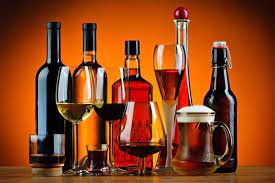What is Alcohol? 
Alcohol is a depressant that reduces activity in the central nervous system. It can decrease heart rate, lower blood pressure, and decrease respiration rate. Alcohol intoxication lowers inhibitions, impairs judgment, slows reaction times and causes loss of fine motor coordination.
When a person drinks too much, their capacity to process information and make safe decisions is impaired. The risks associated with alcohol misuse include hangover, overdose and addiction. Alcohol misuse and abuse places you at increased risk for physical injury, driving under the influence, sexual assault and other violent behavior. Misusing alcohol can also have a negative impact on academic success, work performance, friendships and family relationships.
Numerous health risks are associated with drinking. Alcohol can interact with many over-the-counter, prescription, and illegal drugs, intensifying the effects of these drugs and leading to potential organ failure or death. Long-term excessive drinking can lead to a variety of health problems such as: decreased brain function; impaired sensation, memory lapses or blackouts, organ damage, and addiction. Research indicates that adult children of alcoholics have as much as a four to six times greater risk of becoming an alcoholic or having a problem with other drugs.
Excessive drinking can result in alcohol poisoning. On average, it takes over an hour to eliminate the alcohol content of one drink from the body. Nothing can speed up this process- not even coffee or cold showers. Drinking too much or drinking a large quantity of alcohol quickly raises one’s blood alcohol content to the point where their body cannot effectively process the alcohol. This can result in overdose and possibly coma or death.
Follow the links below to learn more about specific topics.